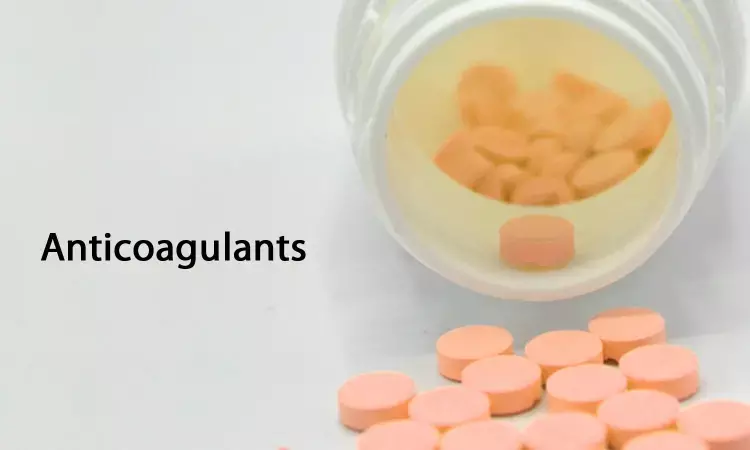- Home
- Medical news & Guidelines
- Anesthesiology
- Cardiology and CTVS
- Critical Care
- Dentistry
- Dermatology
- Diabetes and Endocrinology
- ENT
- Gastroenterology
- Medicine
- Nephrology
- Neurology
- Obstretics-Gynaecology
- Oncology
- Ophthalmology
- Orthopaedics
- Pediatrics-Neonatology
- Psychiatry
- Pulmonology
- Radiology
- Surgery
- Urology
- Laboratory Medicine
- Diet
- Nursing
- Paramedical
- Physiotherapy
- Health news
- Fact Check
- Bone Health Fact Check
- Brain Health Fact Check
- Cancer Related Fact Check
- Child Care Fact Check
- Dental and oral health fact check
- Diabetes and metabolic health fact check
- Diet and Nutrition Fact Check
- Eye and ENT Care Fact Check
- Fitness fact check
- Gut health fact check
- Heart health fact check
- Kidney health fact check
- Medical education fact check
- Men's health fact check
- Respiratory fact check
- Skin and hair care fact check
- Vaccine and Immunization fact check
- Women's health fact check
- AYUSH
- State News
- Andaman and Nicobar Islands
- Andhra Pradesh
- Arunachal Pradesh
- Assam
- Bihar
- Chandigarh
- Chattisgarh
- Dadra and Nagar Haveli
- Daman and Diu
- Delhi
- Goa
- Gujarat
- Haryana
- Himachal Pradesh
- Jammu & Kashmir
- Jharkhand
- Karnataka
- Kerala
- Ladakh
- Lakshadweep
- Madhya Pradesh
- Maharashtra
- Manipur
- Meghalaya
- Mizoram
- Nagaland
- Odisha
- Puducherry
- Punjab
- Rajasthan
- Sikkim
- Tamil Nadu
- Telangana
- Tripura
- Uttar Pradesh
- Uttrakhand
- West Bengal
- Medical Education
- Industry
Therapeutic-dose anticoagulation bests prophylactic dose anticoagulation for reducing mortality in COVID-19 patients: Study

A new study published in the Annals of Internal Medicine found that anticoagulation at therapeutic dose decreased 28-day mortality when compared to prophylactic dose. Thrombosis and systemic inflammation are common in COVID-19 hospitalized patients. Many randomized trials have examined the role of thromboprophylaxis with anticoagulants, most commonly low-molecular-weight heparins, unfractionated heparin, and direct-acting oral anticoagulants.
These trials have reported clinical benefit, no benefit, and potential harm with different anticoagulation drugs and doses in patients with varying severity of COVID-19. Prior to this, the World Health Organization (WHO) Rapid Evidence Appraisal for COVID-19 Therapies (REACT) Working Group published prospective meta-analyses assessing sodium-glucose cotransporter-2 inhibitors, corticosteroids, and interleukin-6 antagonists in these individuals.
This study was set to determine the relationships between higher-versus lower-dose anticoagulation and significant bleeding, thromboembolic events, progression to invasive mechanical ventilation (IMV) or death, and mortality by 28 days following randomization in patients hospitalized with COVID-19.
Without restriction to trial status or language, randomized studies were found using ClinicalTrials.gov and the International Clinical Studies Registry Platform of the World Health Organization. Patients hospitalized with COVID-19 were allocated to higher-dose anticoagulation vs lower-dose anticoagulation in eligible randomized studies.
The data from 20 eligible studies was submitted in a manner that was agreed upon in advance. On the basis of published data, two more investigations were included. All-cause mortality 28 days post-randomization was the main endpoint. Major bleeding, thromboembolic events, and death or progression to invasive mechanical ventilation were secondary outcomes.
Heparin-based therapeutic anticoagulation decreased 28-day mortality when compared to preventive anticoagulation. The odds ratios for 28-day mortality were 0.95 for intermediate-dose anticoagulation versus prophylactic-dose anticoagulation and 1.21 for therapeutic dose versus intermediate-dose anticoagulation.
Although the power of certain analyses was restricted, treatment effects seemed to be generally consistent across established patient subgroups. Higher-dose anticoagulation was linked to a higher risk of significant bleeding but fewer thromboembolic events than lower-dose anticoagulation.
Overall, therapeutic anticoagulation, as opposed to preventative anticoagulation, decreased 28-day mortality in this prospective meta-analysis of clinical trials evaluating anticoagulant dosages for hospitalized COVID-19 patients. Increased-dose anticoagulation was linked to an increased risk of significant bleeding but fewer thromboembolic events for each comparison.
Reference:
Vale, C. L., Godolphin, P. J., Fisher, D. J., Higgins, J. P. T., McAleenan, A., Spiga, F., Tritschler, T., de Barros e Silva, P. G. M., Berg, D. D., Berger, J. S., Berry, L. R., Bikdeli, B., Blondon, M., Bohula, E. A., Cattaneo, M., Colombo, R., Coluccio, V., DeSancho, M. T., … Murthy, S. (2024). Anticoagulation Among Patients Hospitalized for COVID-19. In Annals of Internal Medicine. American College of Physicians. https://doi.org/10.7326/annals-24-00800
Neuroscience Masters graduate
Jacinthlyn Sylvia, a Neuroscience Master's graduate from Chennai has worked extensively in deciphering the neurobiology of cognition and motor control in aging. She also has spread-out exposure to Neurosurgery from her Bachelor’s. She is currently involved in active Neuro-Oncology research. She is an upcoming neuroscientist with a fiery passion for writing. Her news cover at Medical Dialogues feature recent discoveries and updates from the healthcare and biomedical research fields. She can be reached at editorial@medicaldialogues.in
Dr Kamal Kant Kohli-MBBS, DTCD- a chest specialist with more than 30 years of practice and a flair for writing clinical articles, Dr Kamal Kant Kohli joined Medical Dialogues as a Chief Editor of Medical News. Besides writing articles, as an editor, he proofreads and verifies all the medical content published on Medical Dialogues including those coming from journals, studies,medical conferences,guidelines etc. Email: drkohli@medicaldialogues.in. Contact no. 011-43720751


